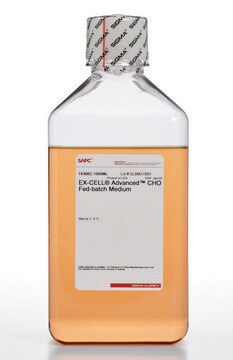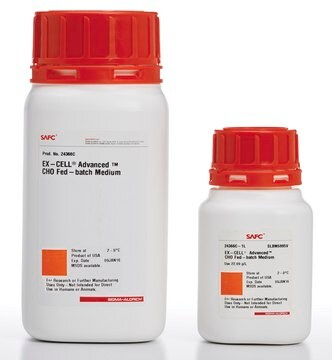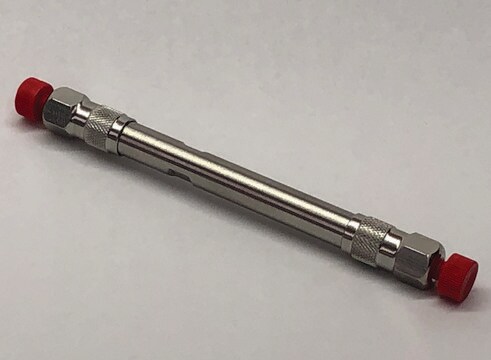C5467
EX-CELL® ACF CHO Medium
Animal-component free, with HEPES, without L-glutamine, liquid, sterile-filtered, suitable for cell culture
Pharma Manufacturing
Synonym(s):
CHO Medium
About This Item
Recommended Products
Quality Level
description
for research or for further manufacturing use
sterility
sterile-filtered
form
liquid
quality
Drug/Device Master File available
technique(s)
cell culture | mammalian: suitable
components
HEPES: yes
NaHCO3: yes
phenol red: no
L-glutamine: no
shipped in
ambient
storage temp.
2-8°C
Looking for similar products? Visit Product Comparison Guide
Application
Features and Benefits
Other Notes
Does not contain antibiotics, antimycotics, L-glutamine, or transferrin. Contains no animal-derived proteins or other components.
Reconstitution
Legal Information
related product
Storage Class Code
12 - Non Combustible Liquids
WGK
nwg
Flash Point(F)
Not applicable
Flash Point(C)
Not applicable
Regulatory Listings
Regulatory Listings are mainly provided for chemical products. Only limited information can be provided here for non-chemical products. No entry means none of the components are listed. It is the user’s obligation to ensure the safe and legal use of the product.
JAN Code
C5467-5L:
C5467-200L:
C5467-1L:
C5467-100L:
C5467-20L:
C5467PROC:
C5467-50L:
C5467-500ML:
C5467-10L:
C5467-1B5100:
C5467-BULK:
C5467-200L5100:
C5467-6X1L:
C5467-PH:
Certificates of Analysis (COA)
Search for Certificates of Analysis (COA) by entering the products Lot/Batch Number. Lot and Batch Numbers can be found on a product’s label following the words ‘Lot’ or ‘Batch’.
Already Own This Product?
Find documentation for the products that you have recently purchased in the Document Library.
Articles
Cell culture protocol for passaging and splitting suspension cell lines
A signal peptide is a 5-30 amino acid (aa) peptide present at the N-terminus of secretory proteins.
MGAT1 adds N-acetylglucosamine to the Man5GlcNAc2 (Man5) structure. Goh et al. reported increased sialylation after restoring MGAT1 function in MGAT1 deficient CHO cells.
Our team of scientists has experience in all areas of research including Life Science, Material Science, Chemical Synthesis, Chromatography, Analytical and many others.
Contact Technical Service





